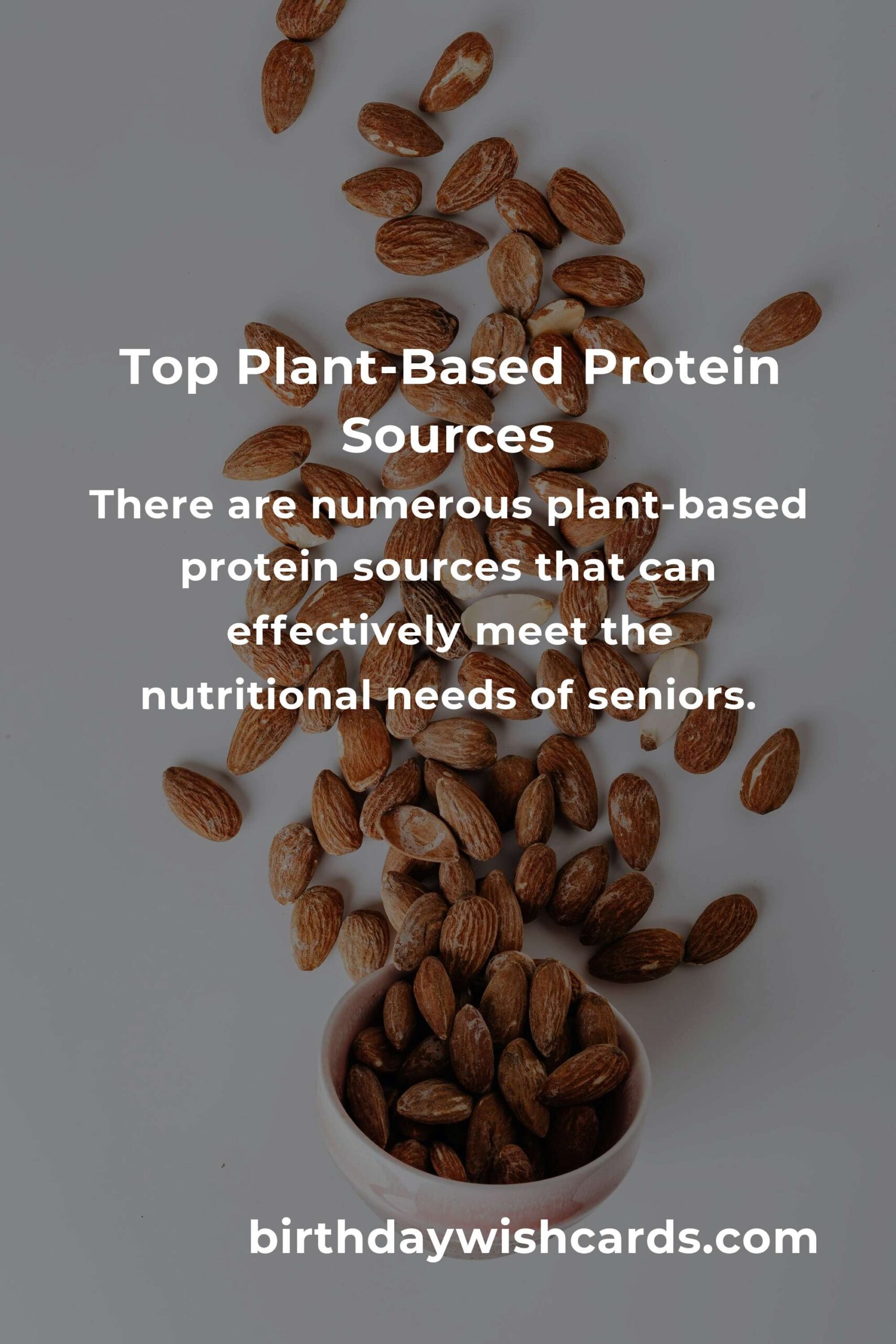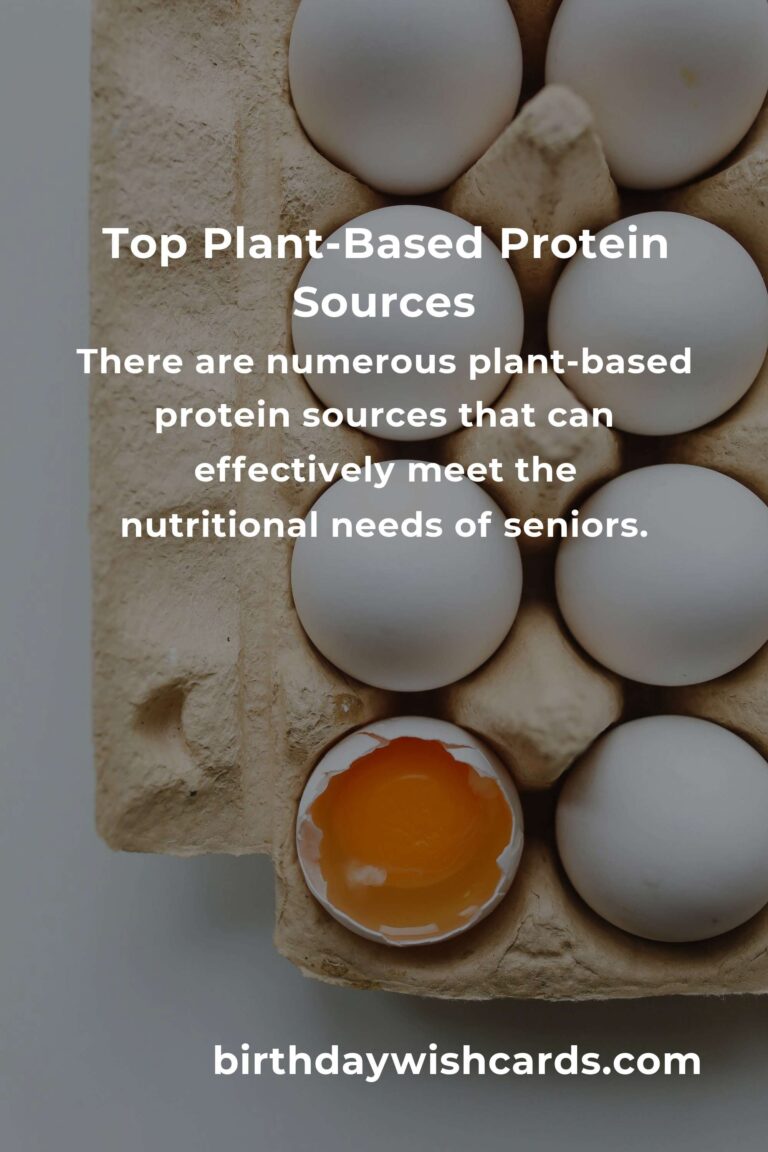
As we age, maintaining a balanced diet becomes increasingly important for overall health and well-being. For seniors, protein plays a critical role in preserving muscle mass, supporting bone health, and maintaining a robust immune system. Traditionally, animal-based proteins have been the go-to source for meeting protein needs. However, with the rise of plant-based diets, many seniors are exploring the benefits of plant-based protein sources. This guide will delve into the importance of protein for seniors, the best plant-based protein sources, and how to incorporate them into a delicious and nutritious diet.
The Importance of Protein for Seniors
Protein is essential for the body’s repair and maintenance processes. It helps rebuild tissues, produce essential hormones and enzymes, and support the immune system. As we age, our body becomes less efficient at processing protein, which can lead to muscle loss, weakened bones, and a decline in physical function. Seniors need to ensure they are consuming adequate protein to counteract these effects and maintain their independence and quality of life.
According to dietary guidelines, seniors should aim for 1.0 to 1.2 grams of protein per kilogram of body weight daily. This intake can help prevent sarcopenia, a condition characterized by the loss of muscle mass and strength. Increasing protein intake is particularly important for seniors who are recovering from illness or surgery, as their bodies require additional resources for healing.
Benefits of Plant-Based Protein
Switching to plant-based protein sources offers several advantages for seniors. Firstly, plant-based diets are typically lower in saturated fats and cholesterol, which can help reduce the risk of heart disease—a common concern for older adults. Additionally, plant-based proteins are often rich in fiber, antioxidants, vitamins, and minerals, contributing to overall health and helping to prevent chronic diseases.
A plant-based diet can also be more environmentally sustainable, as it generally requires fewer resources and generates less pollution compared to animal agriculture. For seniors who are mindful of their environmental impact, choosing plant-based proteins can be a way to align their diet with their values.
Top Plant-Based Protein Sources
There are numerous plant-based protein sources that can effectively meet the nutritional needs of seniors. Here are some of the best options:
- Legumes: Beans, lentils, and chickpeas are excellent sources of protein and fiber. They can be used in soups, salads, and a variety of dishes.
- Tofu and Tempeh: Made from soy, tofu and tempeh are versatile ingredients that can be used in stir-fries, sandwiches, and more. They are also rich in calcium and iron.
- Quinoa: A complete protein containing all essential amino acids, quinoa is a great addition to salads, bowls, or as a side dish.
- Nuts and Seeds: Almonds, walnuts, chia seeds, and flaxseeds provide not only protein but also healthy fats and essential nutrients.
- Whole Grains: Brown rice, oats, and barley are good sources of protein and fiber, supporting digestive health.
Incorporating Plant-Based Protein into Meals
Incorporating plant-based protein into meals doesn’t have to be complicated. Here are some tips to help seniors enjoy a variety of protein-rich, plant-based meals:
- Breakfast: Start the day with a bowl of oatmeal topped with nuts and seeds or a smoothie with spinach, almond butter, and protein powder.
- Lunch: Prepare a hearty lentil soup or a quinoa salad with plenty of vegetables and a lemon-tahini dressing.
- Dinner: Enjoy a tofu stir-fry with a variety of colorful vegetables and brown rice, or a chickpea curry served with whole-grain bread.
- Snacks: Reach for a handful of nuts, a piece of fruit with almond butter, or homemade energy bars made with dates and nuts.
Overcoming Challenges
While transitioning to a plant-based diet can offer many benefits, seniors may face certain challenges, such as ensuring adequate nutrient intake and dealing with dietary restrictions. Consulting with a healthcare professional or a registered dietitian can provide personalized guidance and help address specific dietary needs. Additionally, there are numerous resources and cookbooks available that focus on plant-based recipes tailored for seniors.
In conclusion, plant-based proteins offer a viable and healthful option for seniors seeking to maintain their health and vitality through their diet. By incorporating a variety of plant-based protein sources and meals, seniors can enjoy the benefits of a nutritious diet that supports their changing needs.
Protein is essential for the body’s repair and maintenance processes.
Seniors should aim for 1.0 to 1.2 grams of protein per kilogram of body weight daily.
Switching to plant-based protein sources offers several advantages for seniors.
There are numerous plant-based protein sources that can effectively meet the nutritional needs of seniors.
Incorporating plant-based protein into meals doesn’t have to be complicated.
#PlantBased #SeniorHealth #Protein #HealthyAging #Nutrition

